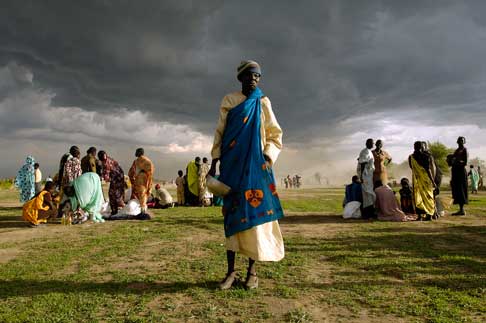
Major progress towards Millennium Development Goals, but the most vulnerable are left behind, UN report says.
UN Secretary-General urges world leaders to step up efforts to meet the Goals
Geneva, 7 July 2011 – Significant strides towards achieving the Millennium Development Goals (MDGs) have been made, yet reaching all the goals by the 2015 deadline remains challenging because the world’s poorest are being left
behind, a UN report says.
The Millennium Development Goals Report 2011, launched today by UN Secretary-General Ban Ki-moon, says there is reason to celebrate, as major successes have been made since world leaders in the year 2000 established the Goals to reduce extreme poverty, hunger, illiteracy and disease.
"Already the MDGs have helped lift millions of people out of poverty, save countless children’s lives and ensure that they attend school,” Mr. Ban said. “They have reduced maternal deaths, expanded opportunities for women, increased access to clean water, and freed many people from deadly and debilitating disease. At the same time, the report shows that we still have a long way to go in empowering women and girls, promoting sustainable development, and protecting the most vulnerable from the devastating effects of multiple crises, be they conflicts, natural disasters or volatility in prices for food and energy.”




